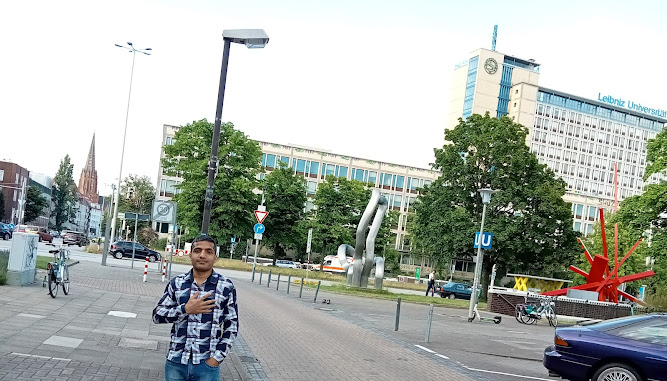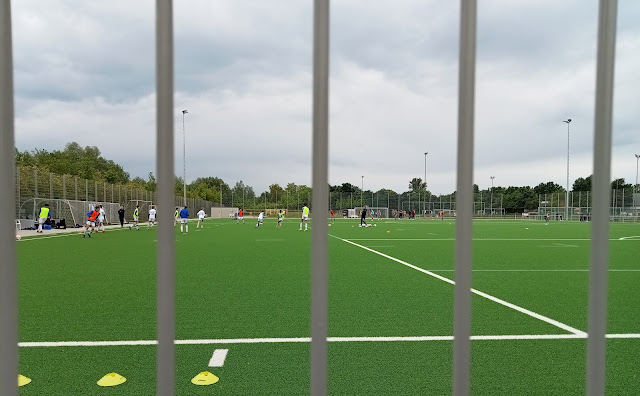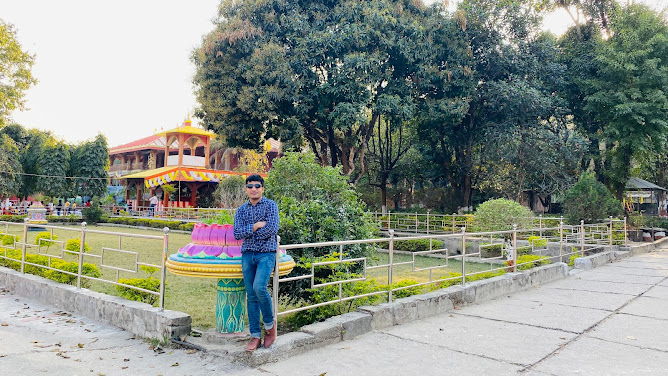जीवनमा कुनै पनि बन्धन नहुनु, कुनै पनि बोझ नहुनु, महत्वकांक्षा नहुनु, केहिपनि कुराको अकुमुलेसन नहुनु, अन्तत: युनिभर्सिटीको सेमेस्टर इन्ड ईक्जाम पनि सकिनु ! उर्फ; सायद चंगा हुनु भनेको यहि होला । तीन महिनासम्मको लागि फुक्काफाल एउटो मान्छे इभिनिङ वाकको लागि जंगलतिर हान्निने तयारी गर्दै...!

Please Keep Calm, Smile And Take a Photo
Because, photograph is the pause button of life

Dear Nature, why R U so amazing? Can I kiss you?
I found, Nature always wears the colors of the soul
Why are so many countries interested in receiving Aid?
Hangover of Hannover: Memories That Remain
In the spring of 2022, from the 29th of May to the 6th of June, our university gang (my fellow classmates, professors and I) embarked on a unique journey to Hannover, Germany. Our mission was to gather data for an academic project to do data analysis, and those days became a tapestry of memories, a blend of remembered and forgotten activities. The train rides to and from the city were enchanting, each window framing a new scene of beauty and anticipation.
The days in Hannover unfolded like a treasure map. We explored archaeological sites, steeped in history, and visited places of worship that seemed to whisper tales of ages past. The city, a blend of modernity and tradition, left a mark on us. The vibrant urban landscape was contrasted by visits to quaint villages and diverse communities, each with its unique story. The cultural centers, youth hubs, and parks were like puzzle pieces forming a vivid picture of city planning done right. The wide, green roads and efficient transportation systems were awe-inspiring. Every corner we turned, every experience we savored, left an indelible impression.
Overall, we see different community, we feel, we lean, we enjoy and we made great memories. Our days were an amalgamation of diverse moments. We conducted many interviews with local, we played games with exuberant children, we played football with children, we played archery, apart from outside games, we even shared our laughter over indoor games. We relished local culinary delights, and embraced the pulse of different communities. Our field trip concluded, yet the "Hangover of Hannover" lingers on. The memories we forged are like stars that continue to twinkle in the night sky of our lives, reminding us of the vibrant days spent in Hannover. The memories we crafted during our visit to Hannover have etched into the very fabric of our existence.
Few more photograph for memories:
तर, एउटो सोलिफिस्टो चरा पनि हामीभन्दा बाठो छ
हामी ठान्दछौं कि पृथ्वी हाम्रो मात्रै रजाइँ गर्ने मैदान हो । खासमा पृथ्वी हाम्रो भन्दा बढी त जीवजन्तु, चराचुरुङ्गी, किराफट्याङ्ग्रा र रूख-बोट-बिरुवा इत्यादिको घर हो । तर, हामीले विलासी जीवन जिउने शिलशिलामा, विकासको नाममा यो साझा पृथ्वीको कयौं रूखहरू काटेर उजाड बनाएका छौं, कयौं जीवजन्तूहरूलाइ मारेका छौ, कयौं चराचुरुङ्गीको घर भत्काइदिएका छौ, प्रविधिको नाममा कयौं हानिकारक केमिकलहरू, विकिरणहरू, मेसिनहरू र मिसाइलहरू बनाईरहेका छौं, जसले पृथ्वी र पृथ्वीवासी सबैमा तिब्र गतिमा हानि पुगिरहेको छ ।
हामिले के भुल्नु भएन भने पृथ्वीमा हाम्रो जति अधिकार छ उति नै समान अधिकार अरू जिवजन्तुहरूको पनि छ । हामीले हामीलाई खुबै बाठो भन्ठान्छौ होला तर एउटा सोलिफिस्टो चरा पनि हामीभन्दा बाठो छ । त्यसर्थ, हामी पनि आफुलाई कृतिम हैन कि प्राकृतिक मानव आत्मसात गरी प्रकृतिको लयमा मिलेर बसौं ! एकअर्कालाई हानि नपुर्याई प्रेम र सद्भावपूर्ण तरिकाले शान्तिपूर्वक बसौं । #EnvironmentDay


































